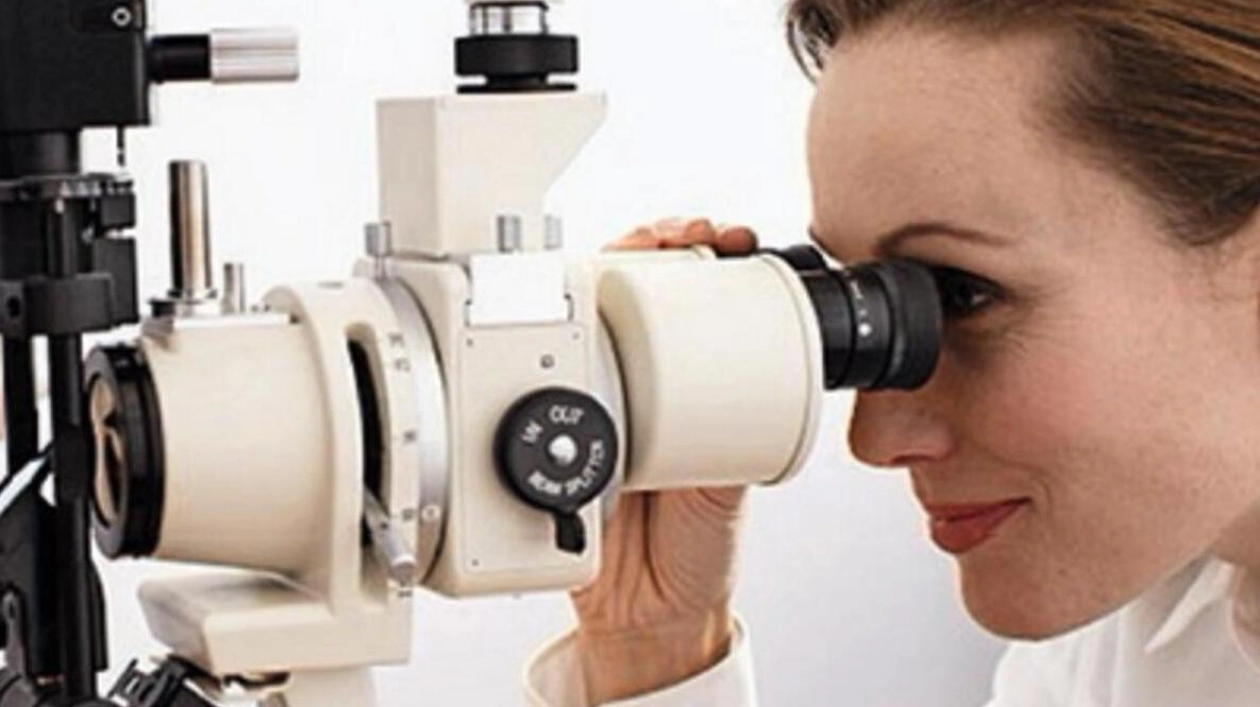A 54-year-old UAE resident narrowly escaped blindness after a severe corneal infection worsened following eye surgery. The surgery involved the implantation of intra-corneal rings, typically used to enhance vision in certain cases where the cornea bulges forward after specific eye procedures. Despite receiving topical medications, including antibiotics, the infection persisted, leading to significant vision deterioration. She subsequently sought treatment at another hospital.
Dr. Borja Salvador, a consultant ophthalmologist at Barraquer Eye Hospital in Dubai, who treated the patient, told Khaleej Times: “She was in pain, had redness in one eye, and a large white spot on the infected cornea. Her vision was severely compromised.” To prevent further vision loss, Dr. Salvador surgically removed the infected ring and thoroughly washed the cornea with antibiotics. Two weeks later, the woman received an additional antibiotic injection directly into the cornea. After several weeks of close monitoring, the infection cleared completely, leaving only a minor scar that did not significantly affect her vision.
Dr. Salvador emphasized that this was a complex and critical case where the patient was at risk of blindness. Timely intervention, including the removal of the infected corneal ring and intensive antibiotic treatment, saved her vision.
Dr. Prem Tanwar, a specialist ophthalmologist at International Modern Hospital Dubai, warned against self-diagnosis: “If you suspect an eye infection, immediate consultation with an eye doctor is crucial. Self-diagnosing can delay treatment and, in rare cases, threaten your vision.” Delayed treatment allows infections to spread, leading to severe inflammation, damage to deeper eye structures, and an increased risk of permanent vision loss. Common signs of an eye infection include redness, pain, discharge, excessive tearing, dryness, sensitivity to light, swelling, itching, and blurry vision.
Dr. Marta Calatayud, a consultant ophthalmologist at Barraquer Eye Hospital, highlighted the severe outcomes of delayed treatment. Untreated bacterial keratitis can lead to corneal ulcers and blindness. Even with treatment, some infections can cause permanent damage if severe or delayed. Conditions like keratitis, conjunctivitis, and endophthalmitis can affect vision if not promptly controlled.
Regular eye checkups are essential for early detection of problems, even before symptoms appear. Early diagnosis of conditions like glaucoma or macular degeneration can prevent or slow vision loss. Eye exams also help identify underlying health conditions such as diabetes or high blood pressure that can impact vision. Dr. Calatayud stressed the importance of early detection and treatment of eye infections to prevent complications, including severe damage and permanent vision loss. She urged people to seek medical help for sudden vision changes.
According to Dr. Calatayud, cataracts typically develop after 50-55 years, while glaucoma can be detected at any age. Age-related macular degeneration is a leading cause of legal blindness in those over 65, and diabetic retinopathy often occurs in patients with poor metabolic control. Common age-related eye problems include cataracts, glaucoma, macular degeneration, and diabetic retinopathy. Early management is crucial to prevent vision impairment or blindness.
Source link: https://www.khaleejtimes.com






